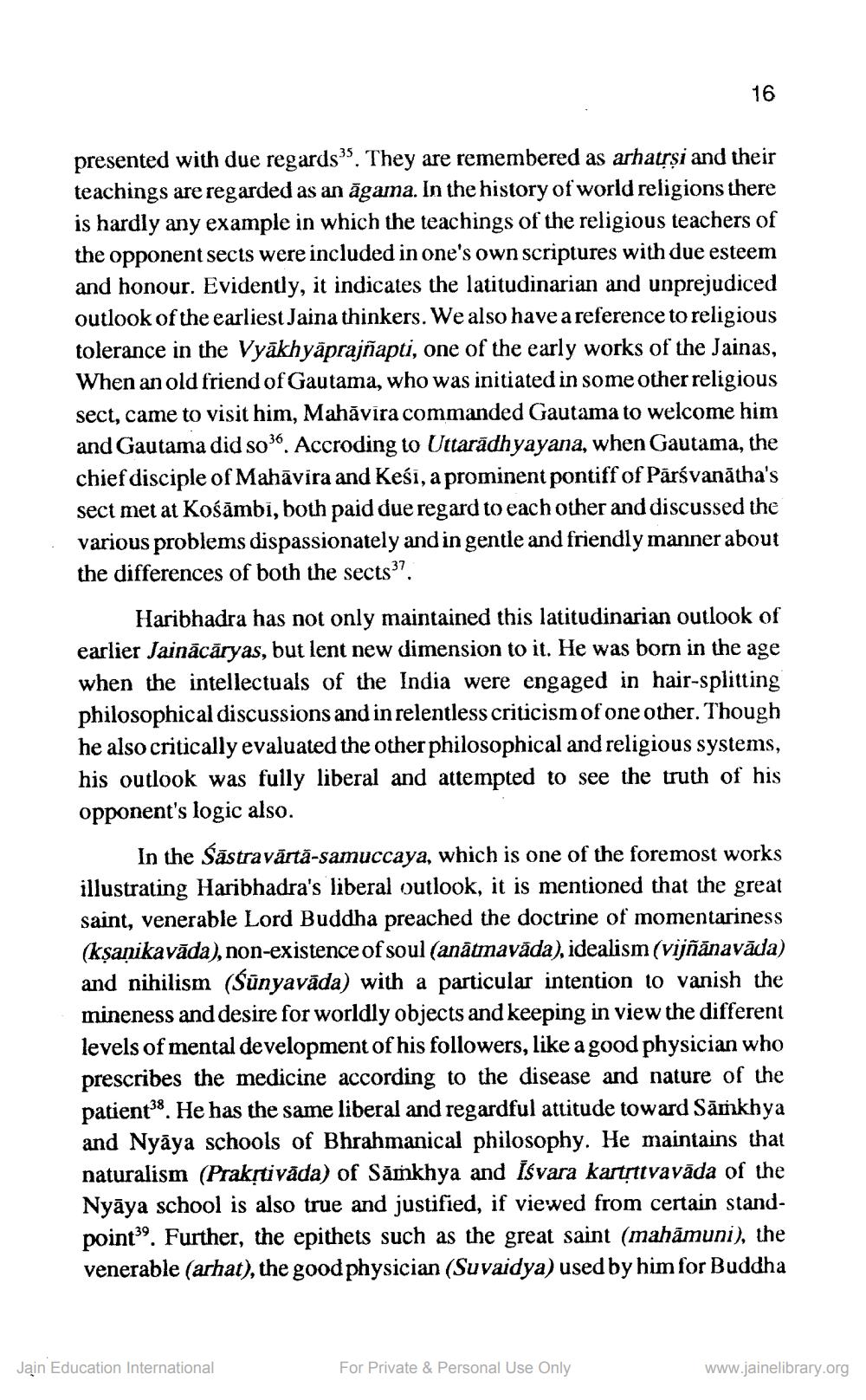________________
presented with due regards35. They are remembered as arhatrṣi and their teachings are regarded as an agama. In the history of world religions there is hardly any example in which the teachings of the religious teachers of the opponent sects were included in one's own scriptures with due esteem and honour. Evidently, it indicates the latitudinarian and unprejudiced outlook of the earliest Jaina thinkers. We also have a reference to religious tolerance in the Vyakhyāprajñapti, one of the early works of the Jainas, When an old friend of Gautama, who was initiated in some other religious sect, came to visit him, Mahavira commanded Gautama to welcome him and Gautama did so36. Accroding to Uttaradhyayana, when Gautama, the chief disciple of Mahavira and Keśi, a prominent pontiff of Parsvanatha's sect met at Kosambi, both paid due regard to each other and discussed the various problems dispassionately and in gentle and friendly manner about the differences of both the sects37.
16
Haribhadra has not only maintained this latitudinarian outlook of earlier Jainācāryas, but lent new dimension to it. He was born in the age when the intellectuals of the India were engaged in hair-splitting philosophical discussions and in relentless criticism of one other. Though he also critically evaluated the other philosophical and religious systems, his outlook was fully liberal and attempted to see the truth of his opponent's logic also.
In the Sastravärtä-samuccaya, which is one of the foremost works illustrating Haribhadra's liberal outlook, it is mentioned that the great saint, venerable Lord Buddha preached the doctrine of momentariness (kṣaṇikavāda), non-existence of soul (anātmavāda), idealism (vijñānavāda) and nihilism (Sūnyavāda) with a particular intention to vanish the mineness and desire for worldly objects and keeping in view the different levels of mental development of his followers, like a good physician who prescribes the medicine according to the disease and nature of the patient. He has the same liberal and regardful attitude toward Samkhya and Nyaya schools of Bhrahmanical philosophy. He maintains that naturalism (Prakṛtivāda) of Samkhya and Iśvara kartṛttvavāda of the Nyāya school is also true and justified, if viewed from certain standpoint. Further, the epithets such as the great saint (mahāmuni), the venerable (arhat), the good physician (Suvaidya) used by him for Buddha
Jain Education International
For Private & Personal Use Only
www.jainelibrary.org




